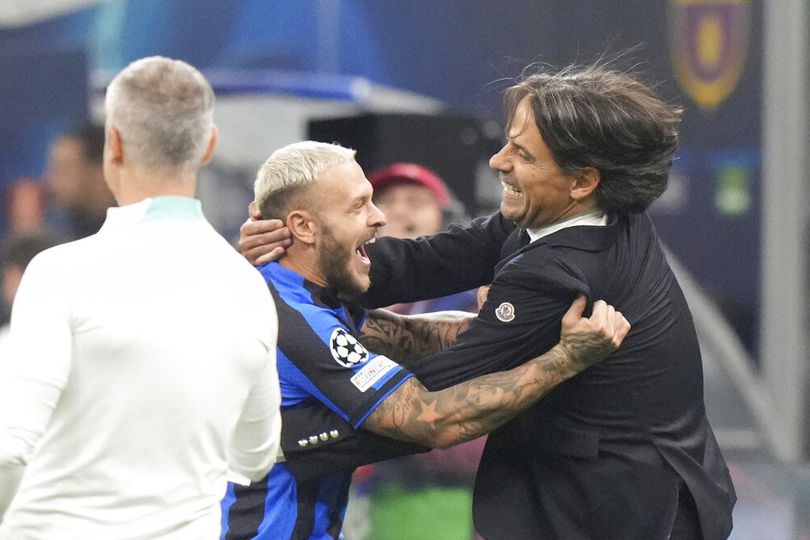In the high-stakes world of professional football, where every minute on the pitch counts, a player`s perspective on their development can sometimes diverge sharply from a coach`s tactical blueprint. Such appears to be the case with Inter Milan`s dynamic wing-back, Federico Dimarco, who recently offered a candid, albeit retrospective, critique of his playing time under former coach Simone Inzaghi.
The Persistent Question of Playing Time
Ahead of a crucial Champions League fixture against Slavia Prague, Dimarco, known for his attacking prowess and tireless runs, didn`t hold back. He openly suggested that Inzaghi`s consistent policy of substituting him around the 60-minute mark across their four seasons together may have inadvertently stifled his physical progression and overall impact. His sentiment was clear:
«I have always trained at 100%. Playing more often for 90 minutes helps you grow in terms of condition rather than always coming off after an hour.»
It`s a declaration that speaks volumes about a player`s desire to contribute fully, not just in bursts, but across the entire match duration. For Dimarco, the full ninety minutes weren`t merely about completing a game; they were a crucible for developing peak match fitness and sustained performance.
The Coach`s Conundrum: Player Development vs. Tactical Pragmatism
While Dimarco`s longing for extended pitch time is entirely understandable from a player`s standpoint, it also illuminates the perennial dilemma faced by coaches. Inzaghi, now guiding another club, was known for a meticulous approach to squad management, particularly with his wing-backs in Inter`s demanding 3-5-2 system. These roles require immense stamina, defensive diligence, and explosive attacking bursts. Managing their minutes was often a strategic decision, aimed at preserving energy, mitigating injury risks, and introducing fresh legs to maintain intensity. One might muse whether Dimarco’s «sixty-minute syndrome» was a testament to his high-energy output rather than a slight, a preventative measure to ensure he could contribute consistently over a long season, or simply a tactical pivot.
The timing of Dimarco`s comments is, of course, a fascinating subplot. Voicing such a direct critique of a former coach`s methods, particularly after their departure, allows for a level of transparency that might be less prudent when both parties are still intertwined at the same club. It offers a glimpse into the unspoken tensions and differing philosophies that can exist even within a successful team dynamic.
A New Chapter: Verticality and Unbroken Fortresses
Despite reflecting on the past, Dimarco quickly pivoted to the present and Inter`s current trajectory. The team is clearly in a positive mood, having secured three consecutive victories and now aiming for a fourth. The focus, according to Dimarco, is firmly on the «present or the future, never the past.» This forward-looking approach is complemented by a new tactical emphasis on «more verticality» in their play, suggesting an evolution in their attacking philosophy.
The Champions League fixture against Slavia Prague also brings Inter back to their fortress, San Siro. With an impressive record of 13 wins and 3 draws in their last 16 home Champions League matches (their last defeat dating back to 2022 against Bayern), the stadium holds a near-mythical status for the Nerazzurri. Dimarco, however, cautioned against complacency:
«We approach matches in the same way. The Champions League demands big results and big games. We must not underestimate Slavia.»
This statement underscores the professional vigilance required at the elite level, where past glories offer no guarantees against present challenges.
The Interplay of Personal Ambition and Collective Strategy
Dimarco`s remarks serve as a reminder of the intricate balance between a player`s individual ambition for development and a coach`s overarching tactical strategy. While the desire to play every minute is a hallmark of a driven athlete, the manager`s role often involves tough decisions that prioritize the collective good, even if it means curtailing a player`s game time. In football, as in life, perspective often changes once the immediate pressures subside, and the wisdom of hindsight offers a fresh lens through which to view past events.

